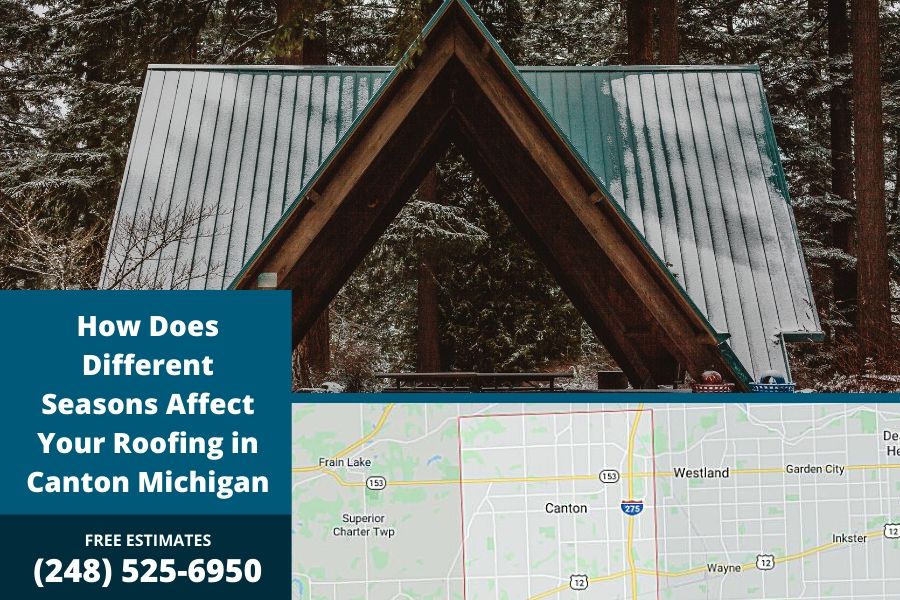The roof on your home is always exposed to the weather. This includes the heat of summer and the frigid cold of winter. These seasons can have an impact on your home’s roof and it can affect it in different ways. One of the biggest problems during the winter months is ice dams in Canton Michigan while during the summer the biggest threat is the wind from severe storms and sometimes hail which can totally destroy a roof. These weather events can cause your roof to leak and damage the inside of your home. Here are some tips to help you make the most of the weather and what you should do during the different seasons to protect your home’s roof.
How Does Different Seasons Affect Your Roofing in Canton Michigan
One way to protect your home’s roof is to regularly check on it. This is especially true after storms. You can make a quick visual inspection of the roof after a storm and look for signs of problems. These signs can be broken or missing shingles or debris which may have impacted the roof in some way. During the winter, there are things you can do to help as well which include the following:

Depending on where you live, winter can be a relatively small drop in temperature, or a massive season change with feet of snow and freezing temperatures. For hotter climates, or places that have snow all the time, you don’t see a major difference during the winter months. But for others, winter brings on a drastic change in the overall environment, requiring a different approach to many parts of your life. One of the major changes that comes with winter is how you approach your roof.
Roofs Are More Exposed to Moisture
This may be obvious, but many homeowners forget just how problematic the moisture on your roof can be. During the rest of the year, you actively remove debris like leaves from your roof where moisture may be sitting. But many homeowners sadly don’t take the same approach to snow. Snow sitting on your roof means constant exposure to moisture, as well as a lot of extra weight on your roof. This is why it is important to take the time to remove as much snow as possible from your roof to eliminate the moisture exposure.
Greater Chances of Damage
With the moisture and weight, and factoring in freezing temperatures, you can expect to see much more damage in winter than the rest of the year. Moisture can freeze and form ice dams on your roof, damaging shingles and ruining your gutters. The moisture sitting on your roof can also work its way through your shingles and form leaks in your roof. Leaks can lead to water in your attic, causing structural damage, mold, electrical shock and fire hazards. This makes it incredibly important to do frequent checks of your attic.
Materials Don’t Work Well in The Cold
You should always try to do any repairs before the winter starts, but that may not always be possible. If you do need to do roof work, you will be limited on what materials you may be able to use. Shingles are one of the most common options for roofs, but do not do well in extreme weather conditions. In cold weather, the shingles can become brittle and break easily. They may not even make it to the roof before becoming damaged. The adhesive used during the installation process also struggles during cold weather. In fact, you may install the shingles during winter, but the adhesive won’t unfreeze and properly stick the shingles to your roof until it is warm again.
Roofing Is More Dangerous
Snow and ice make it much more treacherous to walk around on a roof. Navigating a roof is already dangerous during good weather. But adding on the slippery layers, you can easily fall and get seriously injured.
You Still Need to Perform Regular Maintenance
It is important to remember that you need to keep up your roof maintenance all year long. This includes clearing off debris, keeping nearby trees trimmed, and frequently clearing out your gutters. This will give you the best chance of avoiding issues with your roof. You can also call a roofing contractor in Canton Michigan such as Twelve Oaks Roofing to inspect your roof at 248-525-6950.
